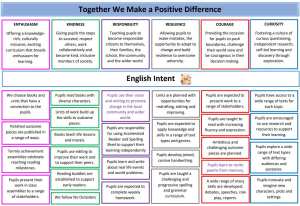English at Fosse Mead is an engaging and exciting subject in which pupils are exposed to a range of high-quality texts both fiction and non-fiction which are all connected to our wider curriculum. Our English curriculum ensures that children are provided with the opportunity to read and write for a range of different purposes and audiences and ensures that they are developing rich and varied vocabulary.


Subject Policies
Book Overviews
Subject Leader/s
Phonics- Mrs Handford-Glaze
Reading and Writing- Miss Orchard
